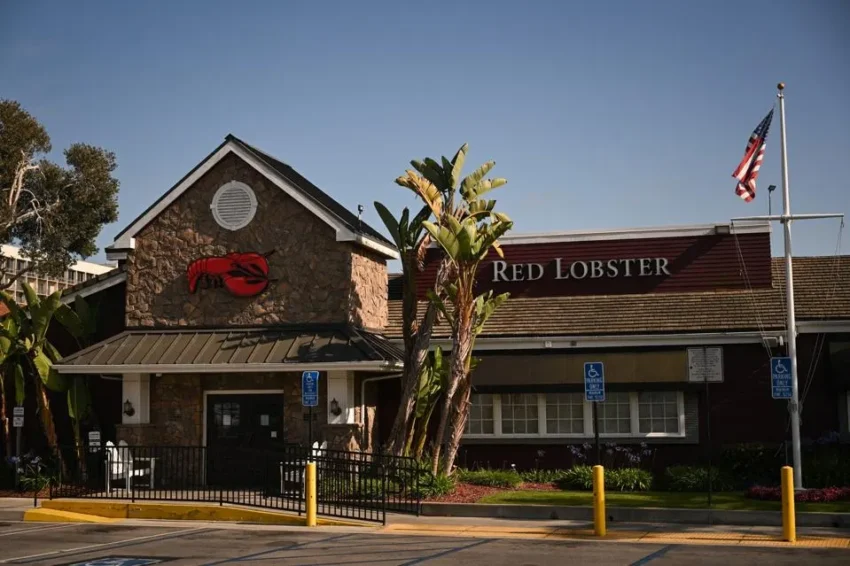Major Restaurant Chains That Have Closed Down Locations Across The U.S. In 2024
A mix of underperformance issues, financial pressures from inflation, strategic realignments, changing consumer trends and overall cost-cutting objectives have all contributed to the recent wave of location closures across several restaurant chains in 2024.
Major chains including TGI Fridays, MOD Pizza, Outback Steakhouse and Applebee’s cited “underperformance” as the main reason for closing certain restaurant locations. They are strategically shuttering stores that are not meeting sales and profit expectations.
Other chains, like Boston Market, Red Lobster and Tijuana Flats, have closed locations due to severe financial troubles, unpaid bills, landlord disputes and even bankruptcy filings. Their closures are directly tied to efforts to cut costs and restructure amid money problems. Denny’s specifically cited inflation-related challenges, like higher costs, as a factor forcing it to close 57 locations in 2023 and planning 10 to 20 more closures in 2024, according to a February earnings call.
Some restaurant closures have been driven by shifts in customer preferences and dining behaviors that have made certain locations less viable. For chains facing financial headwinds, closing underutilized locations is a way to reduce costs and shore up their finances through restructuring.
List Of Fast-Casual Restaurants Shuttering Eateries
1. Cracker Barrel
Cracker Barrel, the southern-country-themed restaurant chain, will close four locations this year, including two in California, one in Oregon and another in South Carolina.
By signing up, you agree to our Terms of Service, and you acknowledge our Privacy Statement. Forbes is protected by reCAPTCHA, and the Google Privacy Policy and Terms of Service apply.
“As a standard course of business, we continually evaluate the performance of our stores, using various criteria to ensure we are meeting the needs of our guests and our business,” Cracker Barrel said in a statement to food outlet Eat This, Not That. “The decision to close a store is never one we take lightly, and our focus right now is on assisting our impacted employees during this transition.”
For over a year, the chain has experienced a downward trend in the number of customers visiting their establishments. The leadership at Cracker Barrel has cited several potential reasons behind this decline: weak marketing, a guest experience gap and cost-conscious consumers.
2. Applebee’s
Dine Brands Global, parent company to Applebee’s, announced in a fourth quarter earnings call that the restaurant chain would be shuttering 25 to 35 locations across the United States this year, after closing 33 restaurants in 2023.
“These closures aren’t a sign of struggling franchisees,” Applebee’s president Tony Moralejo told investors. “They’re offering a sign of struggling trade areas. And I can assure you that our leadership team, we’re pulling every lever we have to offset the downside of closings.”
3. TGI Fridays
TGI Fridays announced in a company statement in January that it would close “36 underperforming locations in select markets across the U.S.” The restaurant chain offered more than 1,000 transfer opportunities, which represented over 80% of the “total impacted employees.”
“Our top priority has always been delivering a superior experience for each and every TGI Fridays guest, and we’ve identified opportunities to optimize and streamline our operations to ensure we are best positioned to meet—and exceed—on that brand promise,” Ray Risley, U.S. president and COO at TGI Fridays, said in the statement. “By strengthening our franchise model and closing underperforming stores, we are creating an unprecedented opportunity for Fridays to drive forward its vision for the future.”
4. Denny’s
In addition to shutting down 57 locations last year, Denny’s anticipates 10 to 20 net unit closures in 2024, according to Restaurant Dive.
CFO Robert Verostek said in its Q4 earnings call in February, “We are continuing to work through some additional closures,” as a result of “inflationary pressures.” While acknowledging that inflation rates decelerated in 2023, Verostek emphasized that the preceding surge in costs still exacted a substantial toll on the company’s restaurant operations. For a location to break even, the CFO said it must now generate $1.2 million, up from $1 million due to inflation.
5. Boston Market
Boston Market began last year with 300 locations, and it is reported that the number is now down to 27, according to Restaurant Business, due to alleged evictions, lawsuits and unpaid bills.
In March, a federal judge nullified Boston Market owner Jay Pandya’s personal bankruptcy bid due to a technical issue in his filing. The court imposed a six-month ban prohibiting Pandya from filing for bankruptcy protection.
